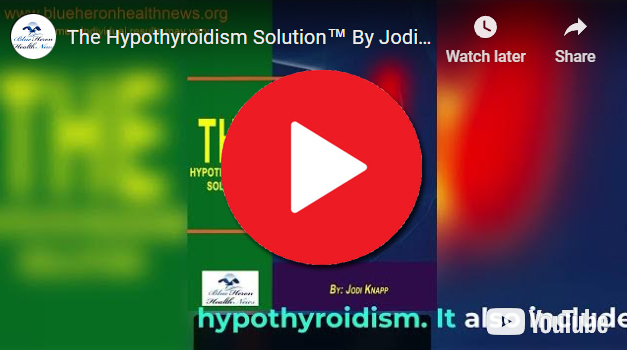
The Hypothyroidism Solution™ By Jodi Knapp Jodi has provided a stepwise guide in the form of The Hypothyroidism Solution to help you in regulating the levels of your thyroid in a better and natural way. Along with curing hypothyroidism, it can also care a number of other health issues experienced by people all over the world. No side effect due to this program has been reported so far. So you can follow this program without any financial as well as emotional risk.
How does radiation exposure impact thyroid function?
Radiation exposure can significantly impact thyroid function, particularly by increasing the risk of thyroid dysfunction and thyroid cancer. The thyroid gland is especially sensitive to ionizing radiation, and exposure can lead to various thyroid-related health issues depending on the dose, duration, and age of exposure. Here are the key ways in which radiation exposure affects thyroid function:
1. Increased Risk of Hypothyroidism
Radiation exposure, particularly to the neck and head, can damage thyroid cells, leading to reduced thyroid hormone production and resulting in hypothyroidism. This is commonly seen in:
- Radiation therapy for conditions like head, neck, or chest cancers (e.g., Hodgkin’s lymphoma, breast cancer).
- Radioactive iodine treatment (RAI), used to treat hyperthyroidism or thyroid cancer, can lead to hypothyroidism as a side effect because it destroys thyroid tissue.
The risk of hypothyroidism increases with the dose of radiation and is a long-term consequence that may develop months or years after exposure.
2. Thyroid Cancer
One of the most well-documented effects of radiation exposure is an increased risk of thyroid cancer, particularly papillary thyroid carcinoma. The risk is especially high in children and young adults exposed to ionizing radiation. This can occur after:
- Nuclear accidents (e.g., Chernobyl, Fukushima), where radioactive iodine isotopes were released into the environment.
- Medical radiation from diagnostic procedures (e.g., X-rays, CT scans), though the doses in diagnostic imaging are typically much lower than in therapeutic radiation or nuclear incidents.
The thyroid absorbs radioactive iodine, which increases the risk of malignancies over time. Thyroid cancers associated with radiation exposure tend to develop many years after the exposure event.
3. Thyroid Nodules
Radiation exposure can lead to the development of benign thyroid nodules. These nodules are usually non-cancerous but may still require monitoring because some may become malignant over time.
4. Disruption of Normal Thyroid Function
Acute or chronic exposure to radiation can disrupt normal thyroid function in several ways:
- Radiation-induced thyroiditis: Inflammation of the thyroid caused by radiation can temporarily lead to hyperthyroidism (excess thyroid hormone production) followed by hypothyroidism.
- Impaired hormone synthesis: Radiation can interfere with the thyroid’s ability to produce thyroid hormones, leading to long-term or permanent thyroid dysfunction.
5. Iodine Deficiency and Radiation Sensitivity
People who are iodine-deficient are more sensitive to radiation’s effects on the thyroid because the thyroid absorbs iodine (including radioactive isotopes) more readily when it is deficient in the nutrient. This makes individuals in iodine-deficient areas more vulnerable to radiation-induced thyroid issues.
6. Age and Sensitivity
- Children and adolescents are more sensitive to the effects of radiation on the thyroid than adults. The younger a person is when exposed to radiation, the higher the risk of thyroid cancer or dysfunction later in life.
- Adults are less vulnerable to thyroid cancer from radiation exposure, though they can still develop hypothyroidism or other thyroid dysfunctions if exposed to high doses.
7. Preventive Measures
- Potassium iodide (KI): In cases of nuclear exposure, taking potassium iodide can help block radioactive iodine from being absorbed by the thyroid, reducing the risk of thyroid cancer.
- Shielding and minimizing exposure: In medical settings, using protective shields and limiting unnecessary exposure to radiation (such as avoiding excessive imaging tests) can help protect the thyroid.
Long-Term Impact
Radiation exposure can have lasting effects on thyroid health, with the risk of thyroid dysfunction or cancer remaining elevated for decades after exposure. Regular monitoring of thyroid function is recommended for individuals who have had significant radiation exposure, especially for those treated with radiation for cancer or those exposed during childhood.

The Hypothyroidism Solution™ By Jodi Knapp Jodi has provided a stepwise guide in the form of The Hypothyroidism Solution to help you in regulating the levels of your thyroid in a better and natural way. Along with curing hypothyroidism, it can also care a number of other health issues experienced by people all over the world. No side effect due to this program has been reported so far. So you can follow this program without any financial as well as emotional risk.